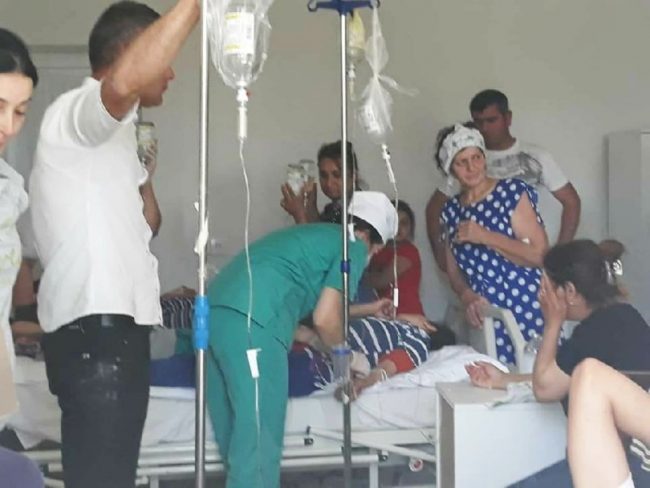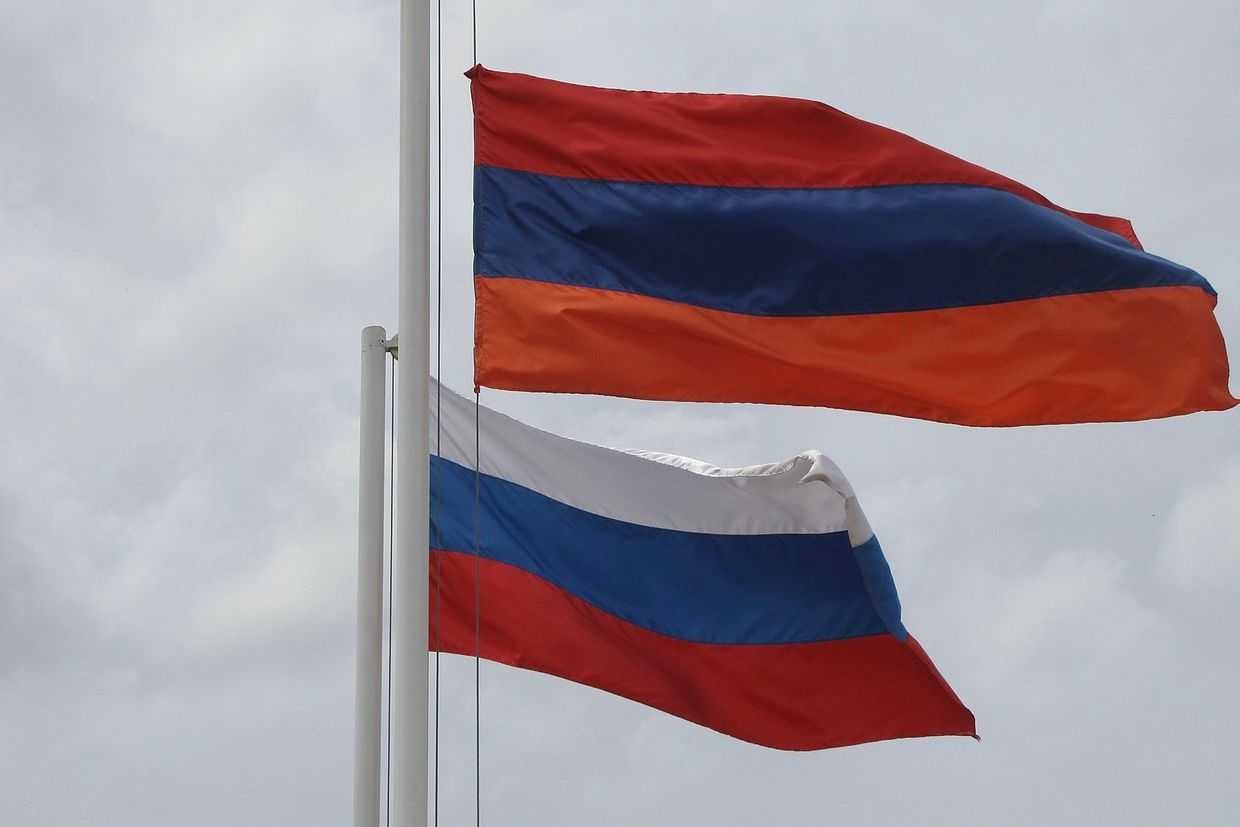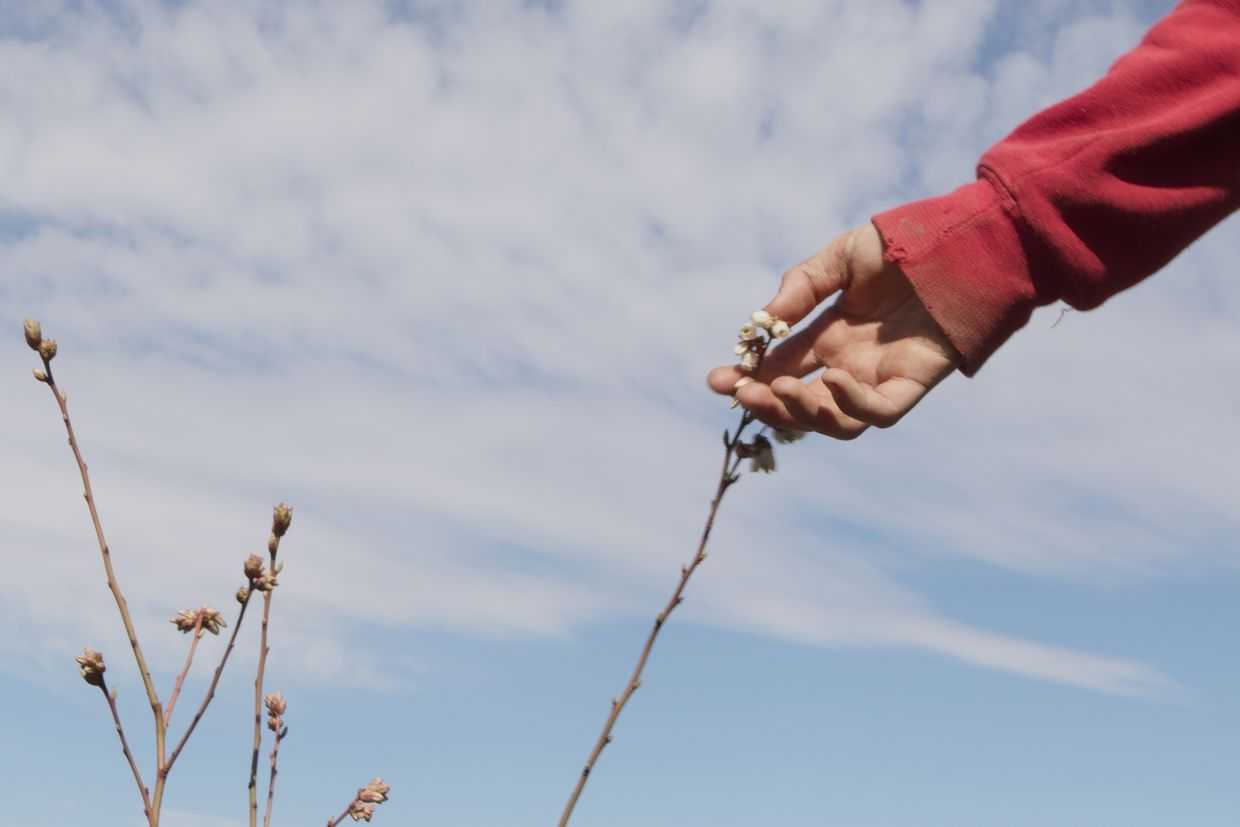

 Ten people have been arrested in Azerbaijan accused of breaching rules on the use of pesticides and fertilisers on cotton plantations. The arrests follow mass poisonings from pesticides and fertilisers in June that may have affected over 300 workers.
Ten people have been arrested in Azerbaijan accused of breaching rules on the use of pesticides and fertilisers on cotton plantations. The arrests follow mass poisonings from pesticides and fertilisers in June that may have affected over 300 workers.
According to the General Prosecutor’s Office, after conducting a forensic examination of the sites of the poisoning, they concluded that rules surrounding the use of pesticides and safety regulations for using fertilisers had been breached.
Among those arrested were four employees of Azerbaijani cotton firm MKT IK, including its Saatli District head, three employees of CTS Agro, another Azerbaijani cotton producer, and the heads of the state Plant Protection Centers of Imishli, Saatli, and Tartar districts.
There were four separate cases of mass poisoning by pesticides in Azerbaijani cotton fields from 10–19 June, in Imishli District, the village of Simada in Saatli District, and the village of Seydimli in Tartar District. According to official figures, nearly 200 cotton-pickers were affected, with symptoms including dizziness, nausea, and loss of consciousness.
Azerbaijani rights activist Ogtay Gulaliyev told Meydan TV, that the number of cases of poisoning reached 300 in June. No fatalities were reported.
Following the incident, Agriculture Minister Inam Karimov vowed that the Food Safety Agency would tighten control over imports of pesticides.
Gilan Holding
According to Georgian investigative website iFact.ge, photos taken in cotton fields in Saatli showed containers of Rifle 48 CE, a pesticide containing Trifluralin, which was banned in the European Union in 2008. Its application, according to them, is permitted in the US and some other countries but requires expensive protective clothing.
In Imishli, iFact.ge identified packaging of another pesticide — Megasun 20 Sp, which is produced in Azerbaijan by Gilan Holding. The report said that MKT IK’s director held positions in several companies owned by Gilan Holding. Local workers confirmed to the outlet that they did not wear protective clothes during harvesting and were not warned about the chemicals beforehand.
An investigation by the Organized Crime and Corruption Reporting Project (OCCRP) released in April suggested that 51% of Gilan Holding was controlled by Sahra FZCO, a company registered in Dubai, which owns ‘major assets’ in a variety of sectors in Azerbaijan including agriculture. According to the OCCRP report, Sahra FZCO’s true owners are Arzu and Leyla Aliyeva, the daughters of Azerbaijani President Ilham Aliyev.
[Read more about about the offshore companies of Ilham Aliyev’s children on OC Media: Azerbaijani ruling elite linked to secret Malta investments]
Forced and child labour
Azerbaijan’s cotton industry, called ‘white gold’ locally, has been seen as a possible supplement to the country’s income, especially after oil prices dropped in 2014. In 2017, the government launched a state programme to develop cotton growing and processing, to ‘meet the demands’ of the local market, increase exports, and stimulate the local textile industry. In a speech in September 2016, Aliyev vowed to return cotton farming to its ‘former glory’. The authorities have announced they aim to bring cotton production to 500 000 tonnes by 2022.
Independent Azerbaijani analyst Arzu Geybulla reported in 2017 that the authorities were forcing civil servants, teachers, students, and doctors to pick cotton during the harvest season in order to meet production quotas.
In June, RFE/RL’s Azerbaijani Service, Radio Azadliq, quoted several cotton pickers as saying that they did not have contracts and that the government would not compensate them for their work. iFact.ge cited a farmer in Saatli as saying that ‘cotton is not a high-profit crop’ but that locals in Saatli were forced to work ‘according to state policy’.
In addition to forced labour, there have been widespread media reports of child labour being used in Azerbaijan’s cotton industry. The industry is included in the Bureau of International Labour Affairs at the US Department of Labour’s list of goods believed to be produced by child labour.









